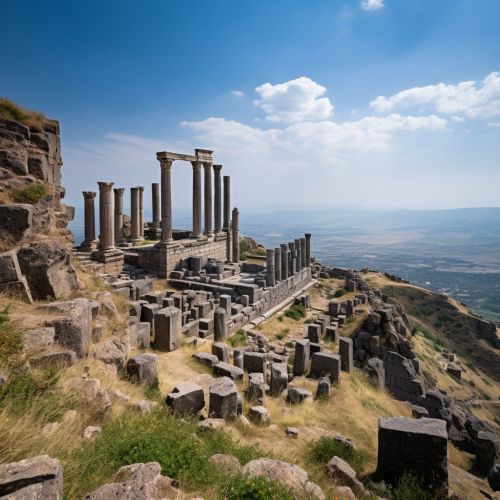Galen
Early Life and Education
Galen was born in the year 129 AD in Pergamon, an ancient Greek city in Asia Minor (modern-day Turkey). His father, Nicon, was an architect and builder, with a keen interest in mathematics, music, and philosophy, which he passed on to his son. Galen was educated in the city's renowned Asclepieion, a healing temple and medical school dedicated to Asclepius, the Greek god of medicine.


Medical Career
Galen moved to Rome in 162 AD, where he gained fame as a physician. He served as a surgeon to the gladiators of the High Priest of Asia, one of the most influential and wealthy men in Asia. This position allowed Galen to observe and treat a variety of wounds, contributing significantly to his knowledge of anatomy and physiology.
Contributions to Medicine
Galen's medical theories dominated European medicine for over a millennium. His anatomical and physiological work remained unsurpassed until the 16th century, when Andreas Vesalius and others challenged his findings. Galen's work on the circulatory system, although flawed in its understanding of blood circulation, laid the foundation for later discoveries by William Harvey.
Philosophy
In addition to his medical work, Galen was a dedicated philosopher, writing on topics such as ethics, logic, and metaphysics. His philosophical views were deeply influenced by the teachings of Plato and Aristotle, and he sought to reconcile their philosophies with his medical knowledge.
Death and Legacy
Galen died in 216 AD, leaving behind a vast body of work that would influence medical and philosophical thought for centuries. His writings were preserved and studied by Islamic scholars during the Middle Ages, and later reintroduced to the Western world during the Renaissance.
